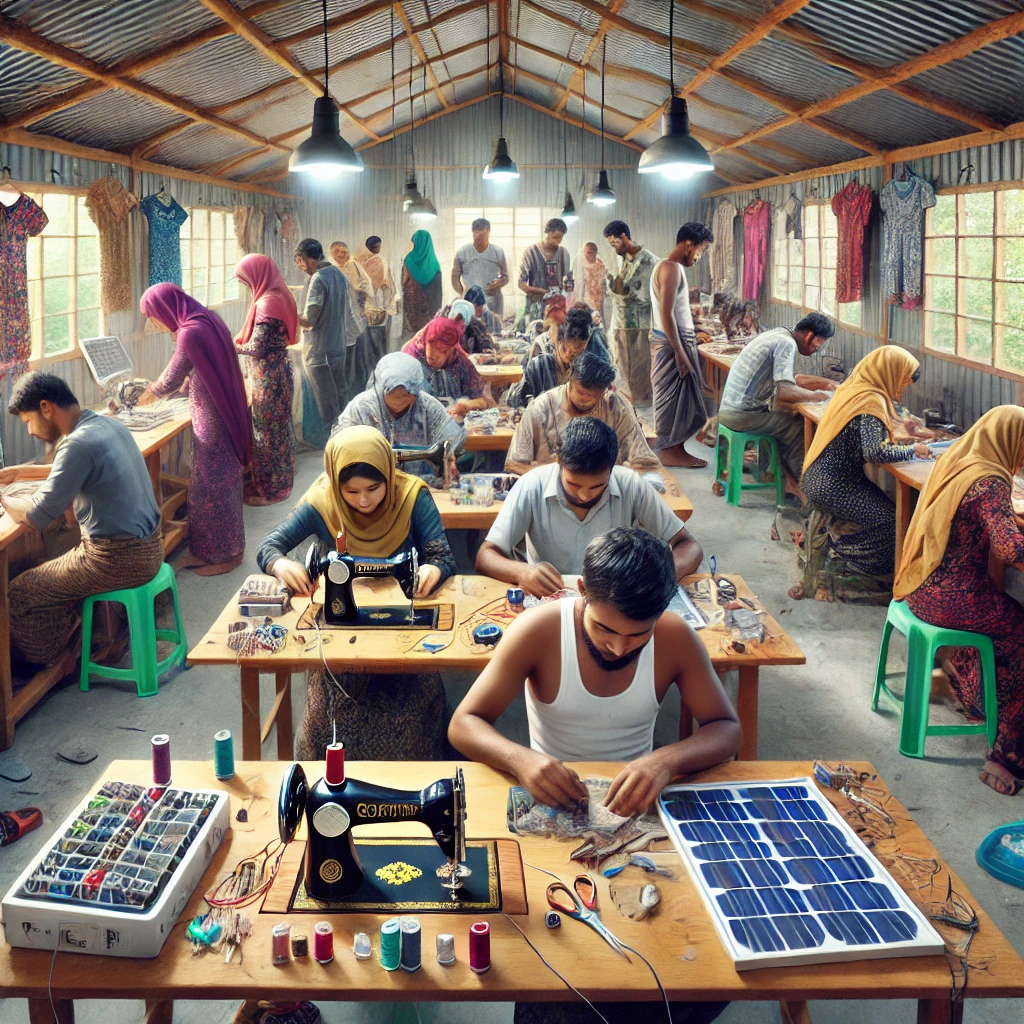UNHCR Projects 2.5 Million Refugees in Need of Resettlement in 2026
Refugees in some cases are opting out of resettlement programs in favor of returning home, driven by hopes of rebuilding amid relative improvements in stability.

According to the UNHCR’s latest Projected Global Resettlement Needs report, an estimated 2.5 million refugees worldwide will require resettlement in 2026. While this figure remains significant, it reflects a modest decrease from the 2.9 million projected for 2025. This change, however, does not signal a reduction in global displacement, but rather highlights shifts in geopolitical and humanitarian dynamics—particularly the evolving situation in Syria, which has seen an increase in voluntary returns.
Refugees in some cases are opting out of resettlement programs in favor of returning home, driven by hopes of rebuilding amid relative improvements in stability. Nonetheless, the overall number of refugees continues to grow, and many remain in urgent need of international protection and durable solutions.
Top Refugee Populations and Host Countries Requiring Resettlement
UNHCR identified the largest refugee populations expected to need resettlement in 2026:
-
Afghans – 573,400
-
Syrians – 442,400
-
South Sudanese – 258,200
-
Sudanese – 246,800
-
Rohingya – 233,300
-
Congolese (DRC) – 179,500
The primary host countries from which refugees will need to be resettled include:
-
Iran – 348,900
-
Türkiye – 258,000
-
Pakistan – 215,000
-
Ethiopia – 213,950
-
Uganda – 174,000
These figures underscore the geographical concentration of displacement crises and the immense burden shouldered by countries already grappling with limited resources.
The Role and Importance of Resettlement
UNHCR emphasizes that resettlement is more than a relocation tool. It represents:
-
A lifeline for refugees facing critical risks such as violence, persecution, and medical emergencies.
-
A safe and legal alternative to irregular or dangerous migration routes.
-
A mechanism for demonstrating international solidarity and reducing pressure on host countries with overburdened national systems.
Through coordinated resettlement programs, host nations can contribute to sustainable refugee responses while allowing vulnerable individuals to rebuild their lives in dignity and safety.
Decline in Resettlement Quotas: A Looming Crisis
Despite the urgent and ongoing need, resettlement quotas in 2025 are forecast to drop to their lowest levels in two decades, even below those seen during the COVID-19 pandemic. This is a stark warning signal for refugee advocates and governments alike. Such a dramatic decline:
-
Threatens to reverse recent progress made through multilateral efforts.
-
Increases the risk of prolonged instability and danger for displaced populations.
-
Undermines confidence in the global refugee protection framework.
UNHCR warns that without sufficient resettlement places, many refugees with acute protection needs may be left stranded and exposed.
Call to Action: Strengthening and Scaling Up Resettlement
To meet the 2026 resettlement target of 120,000 refugees, UNHCR is calling on resettlement States to:
-
Sustain and expand their resettlement programmes, even through modest annual increases.
-
Ensure predictable and flexible quota allocations to adapt to emerging needs.
-
Utilize remote processing and digital systems to expedite and decentralize application procedures.
-
Recognize the critical role that even small quotas can play in saving lives and reinforcing global solidarity.
Recent history shows that reaching this goal is feasible when countries act with determination and collaboration.
UNHCR’s Enduring Commitment
For over 70 years, UNHCR has played a central role in facilitating international resettlement efforts. In 2024 alone, over 116,000 refugees were resettled with the agency’s support—despite numerous operational challenges. Each resettlement spot granted represents not just a statistic, but a life transformed—an opportunity for safety, healing, and hope.
UNHCR reiterates its commitment to continue working with governments, civil society, and other partners to ensure that every available resettlement space is used effectively, and that refugees continue to have access to meaningful, durable solutions.










